ARTICLE AD BOX
Paul AdamsDiplomatic correspondent, Jerusalem

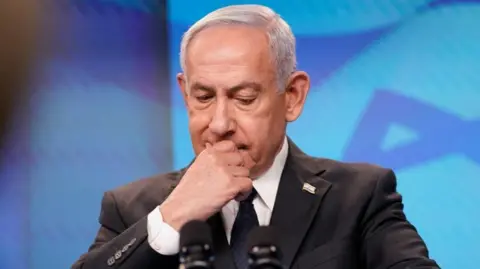 Reuters
Reuters
As the war in Gaza grinds on, Israel's international isolation appears to be deepening.
Is it approaching a "South Africa moment", when a combination of political pressure, economic, sporting and cultural boycotts helped to force Pretoria to abandon apartheid?
Or can the right-wing government of Israeli Prime Minister Benjamin Netanyahu weather the diplomatic storm, leaving Israel free to pursue its goals in Gaza and the occupied West Bank without causing permanent damage to its international standing?
Two former prime ministers, Ehud Barak and Ehud Olmert, have already accused Netanyahu of turning Israel into an international pariah.
Thanks to a warrant issued by the International Criminal Court, the number of countries Netanyahu can travel to without the risk of being arrested has shrunk dramatically.
At the UN, several countries, including Britain, France, Australia, Belgium and Canada, have said they are planning to recognise Palestine as a state next week.
And Gulf countries, reacting with fury to last Tuesday's Israeli attack on Hamas leaders in Qatar, have been meeting in Doha to discuss a unified response, with some calling on countries which enjoy relations with Israel to think again.
But with images of starvation emerging from Gaza over the summer and the Israeli army poised to invade - and quite possibly destroy - Gaza City, more and more European governments are showing their displeasure in ways that go beyond mere statements.

 Reuters
Reuters
The Israeli military is continuing with its offensive in Gaza despite international condemnation
At the start of the month, Belgium announced a series of sanctions, including a ban on imports from illegal Jewish settlements in the West Bank, a review of procurement policies with Israeli companies and restrictions on consular assistance to Belgians living in settlements.
It also declared two hardline Israeli government ministers, Itamar Ben-Gvir and Bezalel Smotrich, persona non grata, along with Jewish settlers accused of violence against Palestinians in the West Bank.
Other countries, including Britain and France, had already taken similar steps. But sanctions on violent settlers imposed by the Biden administration last year were scrapped on Donald Trump's first day back in the White House.
A week after Belgium's move, Spain announced its own measures, turning an existing de facto arms embargo into law, announcing a partial import ban, barring entry to Spanish territory for anyone involved in genocide or war crimes in Gaza, and prohibiting Israel-bound ships and aircraft carrying weapons from docking at Spanish ports or entering its airspace.
Israel's combative foreign minister, Gideon Saar, accused Spain of advancing antisemitic policies and suggested that Spain would suffer more than Israel from the arms trade ban.

 EPA
EPA
Some countries have sought to target far-right Israeli lawmakers Itamar Ben-Gvir (l) and Bezalel Smotrich
But there are other alarming signs for Israel.
In August, Norway's vast $2tn (1.7tn euros; £1.6tn) sovereign wealth fund announced it would start divesting from companies listed in Israel. By the middle of the month, 23 companies had been removed and finance minister Jens Stoltenberg said more could follow.
Meanwhile, the EU, Israel's largest trading partner, plans to sanction far-right ministers and partly suspend trade elements of its association agreement with Israel.
In her 10 September State of the Union speech, EU Commission President Ursula von der Leyen said events in Gaza had "shaken the conscience of the world".
A day later, 314 former European diplomats and officials wrote to von der Leyen and EU foreign policy chief Kaja Kallas calling for tougher measures, including a full suspension of the association agreement.
One feature of the sanctions levelled at South Africa between the 1960s and the end of apartheid - a policy of racial segregation and discrimination that was enforced by the white minority government in South Africa against the country's black majority - in the 1990s was a series of cultural and sporting boycotts.
Again, there are signs of this starting to happen with Israel.
The Eurovision Song Contest might not sound like a significant event in this context, but Israel has a long and illustrious history with the competition, winning it four times since 1973.
For Israel, participation is symbolic of the Jewish state's acceptance among the family of nations.
But Ireland, Spain, the Netherlands and Slovenia have all said, or hinted, that they will withdraw in 2026 if Israel is allowed to compete, with a decision expected in December.

 EPA
EPA
Israel has been a Eurovision regular since the 1970s but some countries have threatened to boycott next year's competition
In Hollywood, a letter calling for a boycott of Israeli production companies, festivals and broadcasters "that are implicated in genocide and apartheid against the Palestinian people" has attracted more than 4,000 signatures in a week, including household names like Emma Stone and Javier Bardem.
Tzvika Gottlieb, CEO of the Israeli Film and TV Producers Association, called the petition "profoundly misguided".
"By targeting us – the creators who give voice to diverse narratives and foster dialogue – these signatories are undermining their own cause and attempting to silence us," he said.
Then there is sport. The Vuelta de Espana cycling race was repeatedly disrupted by groups protesting the presence of the Israel-Premier Tech team, forcing a messy, premature end on Saturday and the cancellation of the podium ceremony.
Spanish Prime Minister Pedro Sánchez called the protests a source of "pride", but opposition politicians said government actions had caused international embarrassment.
Also in Spain, seven Israeli chess players withdrew from a tournament after being told they would not be able to compete under their flag.
The Israeli government's response to what the media have already dubbed a "diplomatic tsunami" has generally been defiant.
Netanyahu accused Spain of a "blatant genocidal threat" after its prime minister said his country, lacking nuclear bombs, aircraft carriers or large oil reserves, was not able to stop Israel's offensive in Gaza by itself.
After Belgium announced its sanctions, Gideon Saar wrote on X that it was "regrettable that even when Israel is fighting an existential threat, which is in Europe's vital interest, there are those who can't resist their anti-Israeli obsession".

 Reuters
Reuters
The Vuelta, one of cycling's major annual races, was repeatedly disrupted by pro-Palestinian protests
But among those who have represented Israel abroad, there is deep anxiety.
Jeremy Issacharoff, Israel's ambassador to Germany from 2017 to 2021, told me he could not recall Israel's international standing being so "impaired", but said many of the moves were "regrettable" as they were inevitably being seen as targeting all Israelis.
"Instead of singling out the policies of the government, it's alienating a lot of Israelis in the middle ground."
He said some steps, like recognising the state of Palestine, were likely to prove counterproductive, as it "gives ammunition to people like Smotrich and Ben Gvir and even enhances their argument to annex [the West Bank]".
Despite his fears, the former ambassador does not believe Israel's diplomatic isolation is irreversible.
"We're not in a South African moment, but we're in a possible preamble to a South African moment," he said.
Others believe more profound change is needed to halt Israel's slide towards pariah status.
"We have to regain our place in the family of nations," another former diplomat, Ilan Baruch, told me.
"We need to get back to our senses."
Baruch, who was ambassador in South Africa a decade after the end of apartheid, resigned from the diplomatic service in 2011, saying he was no longer able to defend Israel's occupation. Since retiring, he's been a vocal critic of the government and supporter of a two-state solution.
He believes recent sanctions are necessary, saying: "That's how South Africa was pushed to its knees."

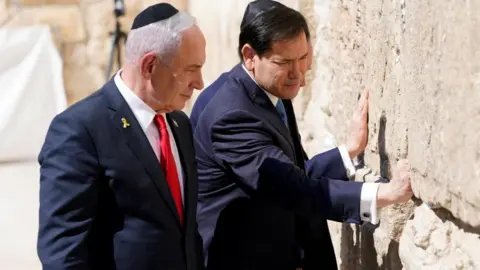 Reuters
Reuters
Israel maintains the backing of the US, whose Secretary of State Marco Rubio is visiting this week
Baruch continued: "I would say that assertive pressure on Israel in any way the Europeans believe is at their disposal should be welcome."
If necessary, he said, this should include changes to visa regimes and cultural boycotts, adding: "I'm prepared for the pain."
But for all the expressions of outrage and talk of pressure, some veteran observers doubt Israel is on the edge of a diplomatic precipice.
"Those who are willing to go down the Spanish route are still outliers," Daniel Levy, a former Israeli peace negotiator, told me.
He said efforts to take collective action within the EU – scrapping elements of the association agreement or even, as some have suggested, freezing Israel out of the EU's Horizon research and innovation programme – are unlikely to garner sufficient support, with Germany, Italy and Hungary among members resisting such moves.
Israel also still has the staunch backing of the US, with Secretary of State Marco Rubio saying Washington's "relationship with Israel is going to remain strong" as he departed for an official visit.
Levy still believes Israel's international isolation is "irreversible" but says the Trump administration's continued support means it has not yet reached the point where it can change the course of events in Gaza.
"Netanyahu is running out of road," Levy said. "But we haven't hit the end of the road yet."

 2 hours ago
3
2 hours ago
3
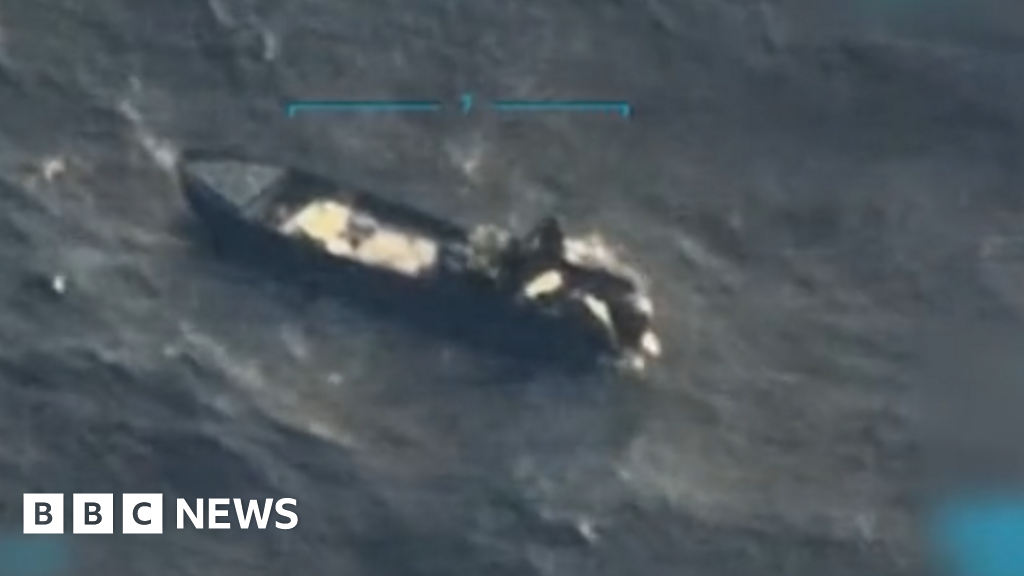
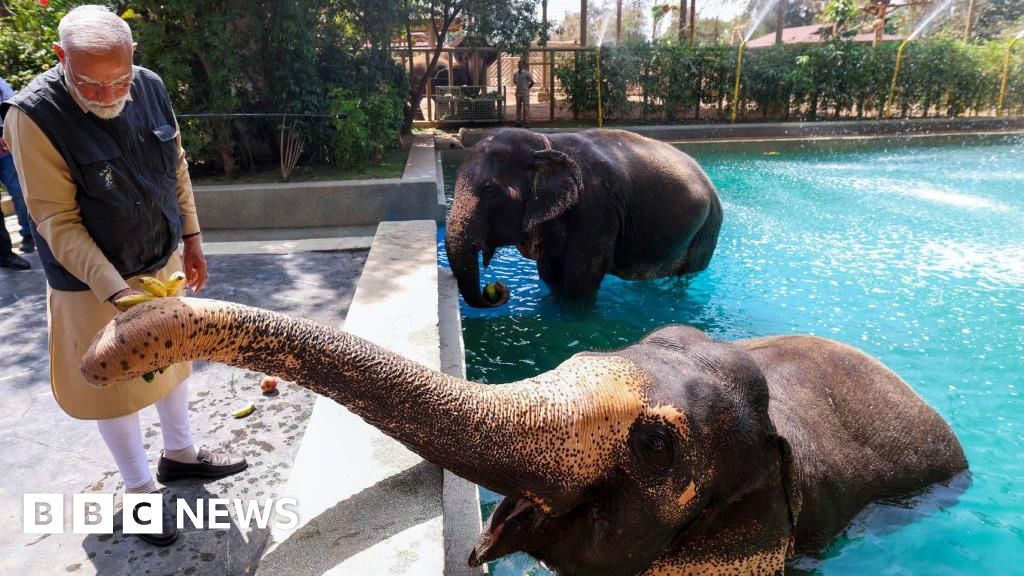
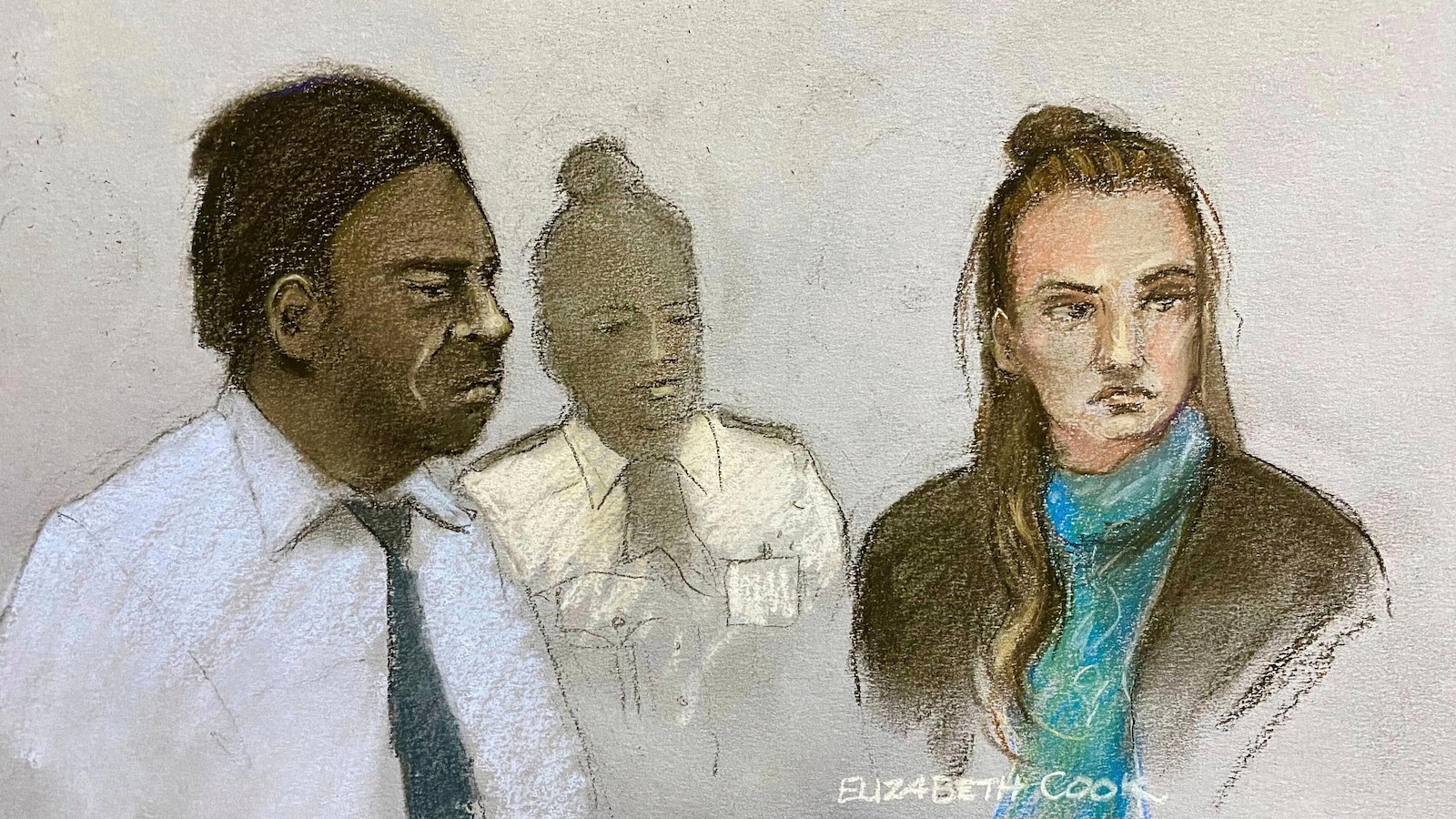





 English (US) ·
English (US) ·